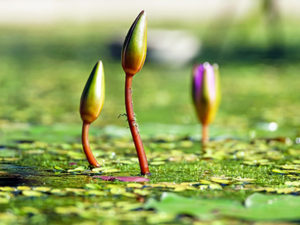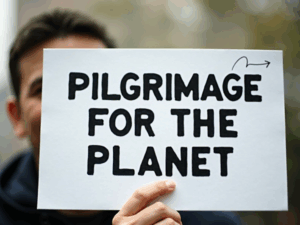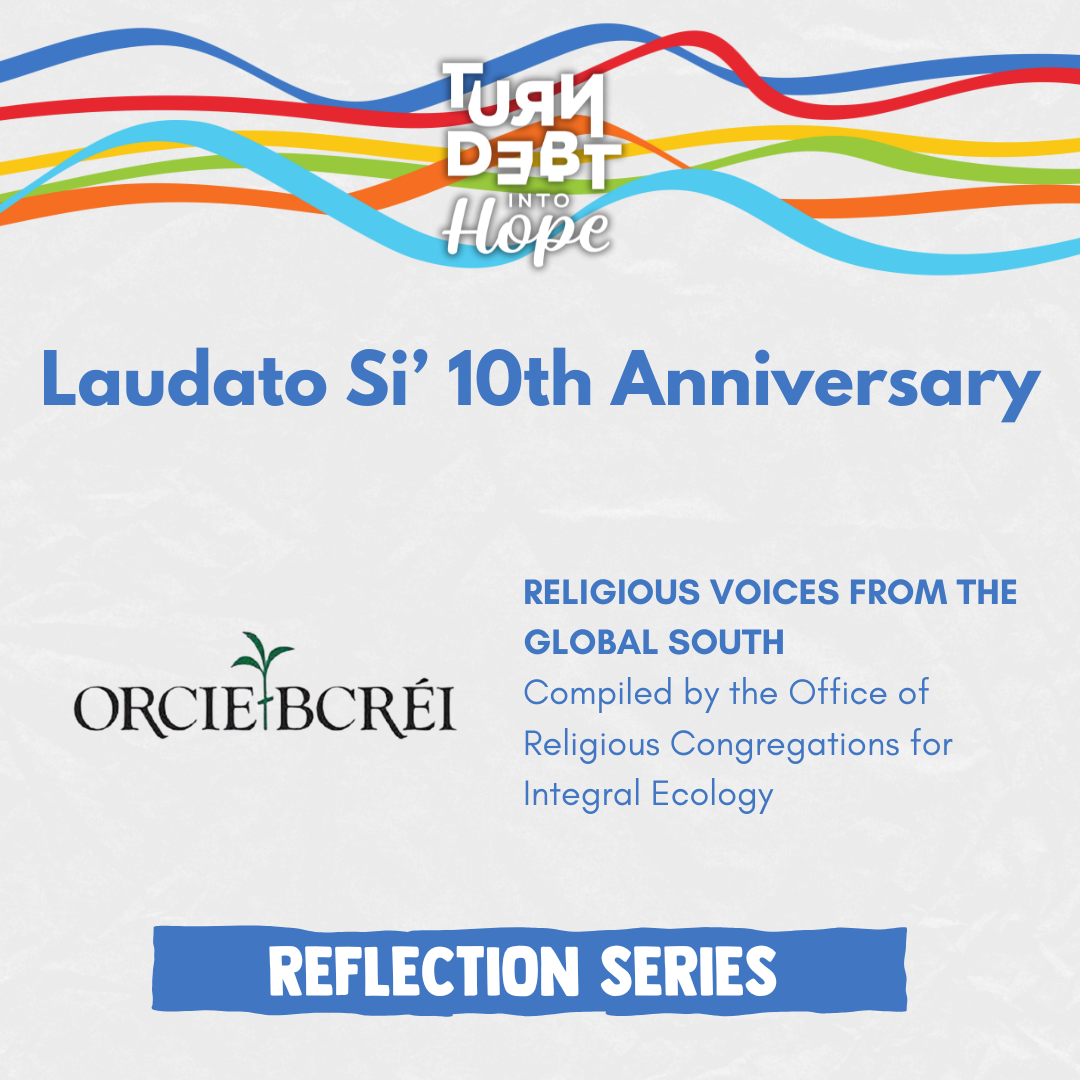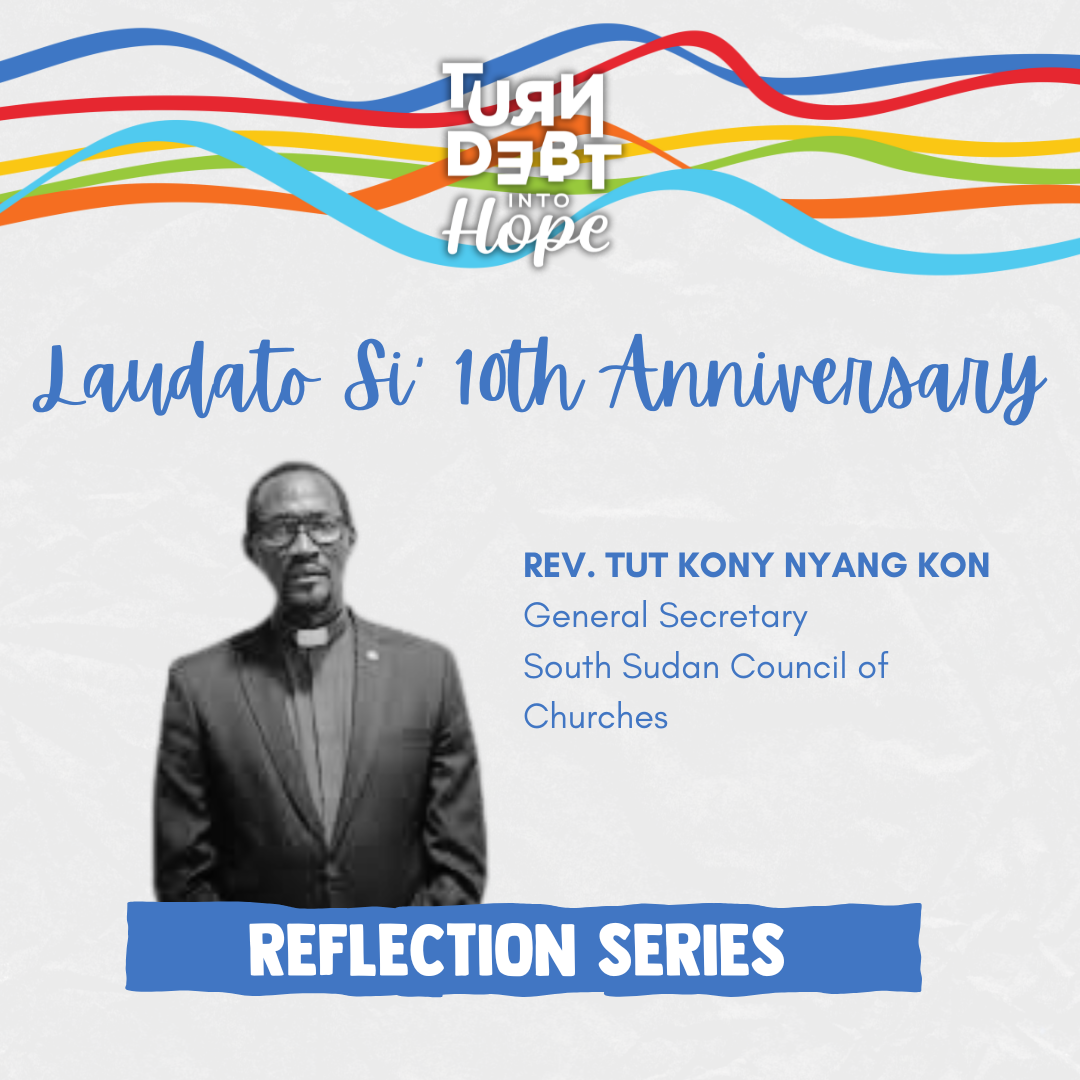Spirited Reflection: For the beauty of the earth

Glistening pine needles, sunlight dancing; wind through trees, branches flailing wildly; chipmunks scampering over the forest floor; whitecaps whipping across blue waters; greyed white clouds scudding across blue skies; painters’ brush, daisies, poppies in woods and fields; green hills and rocky outcrops; croaking frogs, bright winged butterflies, buzzing bees, chirping birds; silvered minnows darting in sunlit sandy shallows–all this magnificent beauty is Earth. Open hearts treasure it. If we let our cares, fears, and worries go, our hearts will sing with joy and gratitude. For Earth is God’s wondrous gift to us, as life itself is.
But today’s technological gadgets, preoccupying us for pleasure or business, leave many distracted and alienated from human relationships, and keep us from being aware of, let alone savouring Earth. The underlying ethos of our society—growth and prosperity—ignores Earth, the basis of life, which is simply an externality to the still dominant neoliberal economists. Every day new technological wonders are touted to revolutionize our lives, increasing ease and pleasure. “More” is seen as better. “New,” “improved” –progress—will come from our skilled minds and developing technologies, we assume. But data show our civilization already consumes more than Earth’s renewable resources. Earth – our fragile island home—is being stripped of life because we have not understood it as gift and grasped the implications of that gift.
The story of the beginnings of life on this planet, told in Genesis, has deep meaning for us now. It tells us that Creation is good and to be celebrated, and that we and all creatures are born not of our own choosing, but created, needing Earth to thrive. Linked with all other living creatures in a web of life dependent on Earth, we know ourselves, as Genesis tells us, to be the thinking top of that web, who must take responsibility for sustaining and nurturing it.
If we could open our eyes and hearts to the beauty and wonder of Earth, celebrate the marvel of life, we would also feel the horror of the destruction and waste of our civilization, as the extinction of animals, birds, fish, and corals, under human pressure, proceeds at an alarming pace. We would understand the folly of the ways in which we are increasing greenhouse gas emissions and pushing Earth closer to the day when it will not be home for life but a bleak orb of dying ocean, forests, lands, crops, and frail flesh.
It is sobering to realize that since December 1971 humankind has been using more resources than Earth can provide sustainably. In 2017 Earth overshoot began on 2 August. To meet our collective demands, we need 1.7 planets.
The Imperative
We have many resources to address our environmental, economic, and social destruction: a wealth of indigenous knowledge of the land and waters to draw on; dedicated scientists focused on the climate crisis; and ecological economists focused on assumptions, theories, systems, and structural changes needed. We must, first and foremost, move beyond the neoliberal assumption that science and technology will bring growth defined as “progress” and such “progress” is the good we should seek. Since we are part of a web of life dependent on Earth’s flourishing, we must make this the grounding assumption—paradigm—for our economy, society, and daily life. An ecological economics is imperative.
But, most of all, we need awe and wonder, gratitude, love, and sorrow for our manifest failings, deeper understanding. Only such a spiritual awakening can move us to commitment and action in our daily lives, our churches, communities, nation, and the wider world. Faith without works is dead. Find out how to make a difference! Aside from KAIROS, do you know about JustEarth, the David Suzuki Foundation, Canadian Wildlife Federation, The Climate Atlas of Canada, EcoJustice, Bullfrog Power? – examples of creative initiatives to work with!
The twin crises of climate change and nuclear weapons threaten the future of life on Earth. Expert warnings and evidence of risks have not prompted the actions urgently required. Ordinary people, awakened to their own power, have shown the way forward in the nuclear crisis by helping achieve in July 2017—despite Canada’s and the nuclear weapons states’ derision —the Treaty on the Prohibition of Nuclear Weapons. Our governments still give $3.3 billion in annual subsidies to fossil fuel industries, despite promises to eliminate them. People power is desperately needed.
Can love of Earth’s beauty and gratitude for the gift of life wake us up? Only such an awakening can lead us to true praise by word and deed. Then Earth might be home to more generations of grateful living creatures as we have listened to God.
Phyllis Creighton, an author with an MA in history and a half-century career as a researcher and editor with the Dictionary of Canadian Biography, has long been an activist for peace and justice, in the Anglican Church of Canada and in the community. A lay Canon in the diocese of Toronto, adjunct faculty in the Faculty of Divinity, Trinity College, and also a Raging Granny, she was given the Anglican Award of Merit in 1991. She was made a member of the Order of Ontario in 2013.







